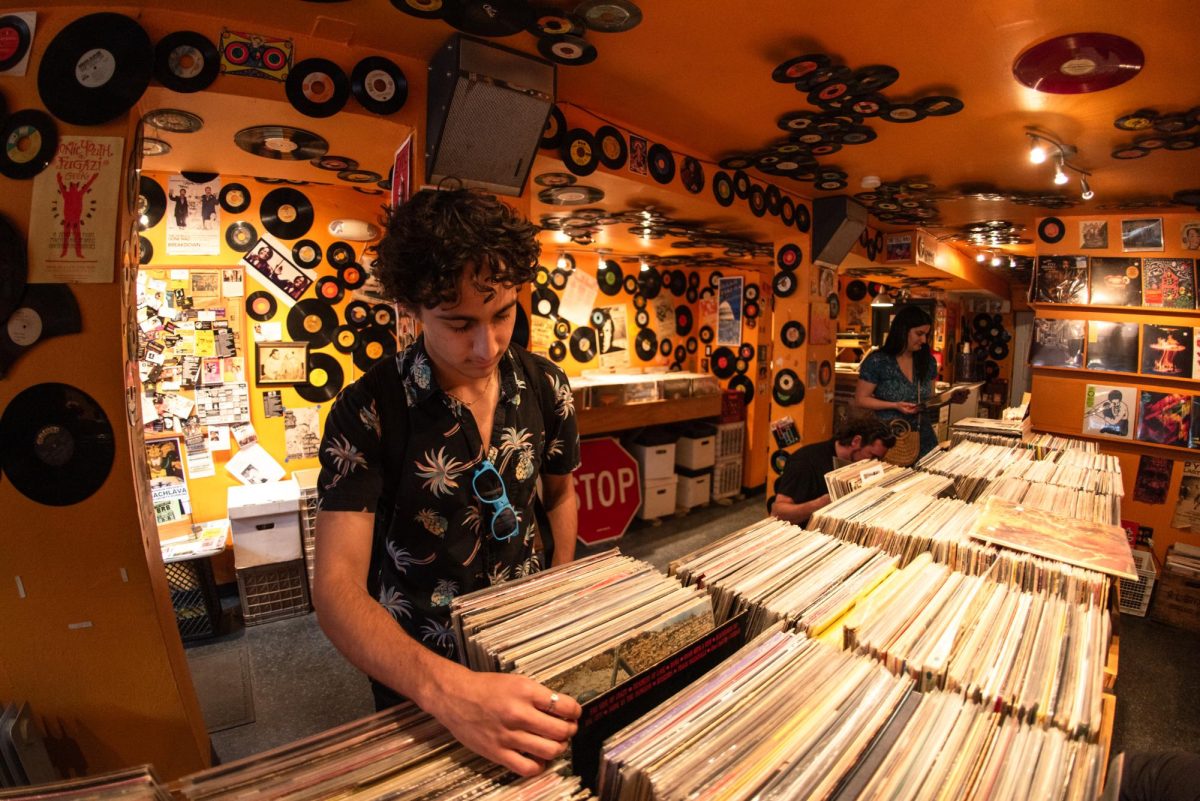Hundreds of online games have entered the fray of cryptocurrency in the past year, marketing their product as a potential money-maker for players. One student hopes to start out to consumers by creating a game that allows users to turn a profit by cultivating virtual pets.
Blake Richardson, a senior majoring in economics, is the CEO of a blockchain-based computer game called CryptoPets. In the game, players collect pets and battle other users, but the cartoon characters also serve as a digital monetary asset that can be exchanged and sold with the cryptocurrency Ethereum.
Similar to other games with tiny fighting creatures, each pet has a type like fire, water or Earth that gives it strengths and weaknesses compared to other pets. The winner of each battle gains a pet level, upgrading not just its stats – but also the monetary value. After each battle, players can continue to fight online to increase the worth of the asset or sell it on an online exchange.
“Imagine your favorite character doesn’t end at the end of your video game,” Richardson said. “You can continue playing with it, winning more achievements. If you get bored of it, you can sell it because there is this massive liquid marketplace for game assets.”
The game currently has about 900 users who can choose to buy one of five pets from the site to start out: Breezling, Heatyena, Pebbler, Phribbit or Princer. The scowling monsters look like cartoon creatures that range from cute and harmless to fuzzy and bloodthirsty. Richardson said he wanted to appeal to his demographic of men in their 20s, so he had to design more “serious-looking” pets – with empty eyes that carry a more sinister glare than most Pokemon or Neopets.
While thousands of cryptocurrencies exist, Richardson decided to base the game on an Ethereum platform. The marketplace allows the developer to build smart contracts, which assigns each pet an individual value within their encoded DNA. If Richardson used Bitcoin rather than Ethereum, players would use Bitcoin as simple currency to buy a digital pet, but Ethereum means they can be exchanged as an additional asset separate from the original currency.
“Each of the pets are their own unique crypto-asset,” he said. “It’s something real, it’s tangible.”
The crypto-gaming industry boomed at the start of 2018 with CryptoKitties, a game that sold virtual cats that players could breed, raise and resell the creatures. The kittens acted as a virtual asset, with the most expensive one sold at $170,000 in September.
Richardson noticed an uptick in blockchain games, like CryptoKitties, so he started his own version. On CryptoPets, pets are sold for varying prices, starting at $5 and sometimes valued at $200, he said.
“It was around December 2017 that CryptoKitties was announced and the hype was building,” Richardson said. “Some of the guys on our team started buying CryptoKitties and we were like, ‘We should do something like this.’ So CryptoPets was kind of started as a joke.”
However, Richardson wanted to differentiate CryptoPets from its competition with a battle-based game rather than one designed to make money for the site. He said the unique code of each individual pet adds to the game’s rarity and makes players more incentivized to collect them.
“A lot of the reason people play crypto-video games is that they want to make money off of it, so the monetization aspect of it is huge compared to normal video games,” Richardson said. “We took a more video game approach.”
The game rolled out with five pets, but Richardson sees an ambitious future – including 12 new pets, a version of the game for Nintendo Switch and an AI system that allows players to fight against the system instead of a real-life opponent. He said he wants to ensure that CryptoPets is not just a place to store digital currency, but a game to enjoy.




